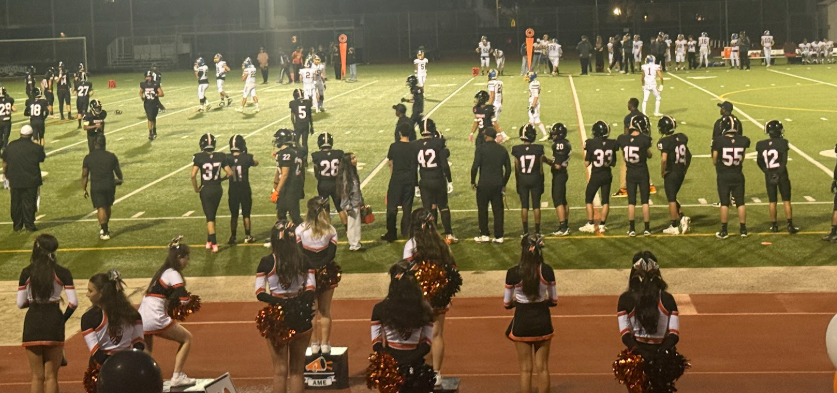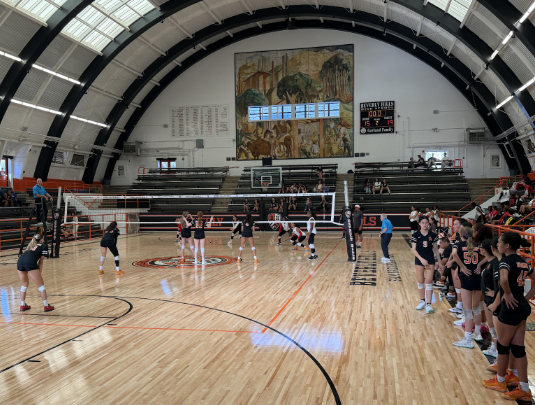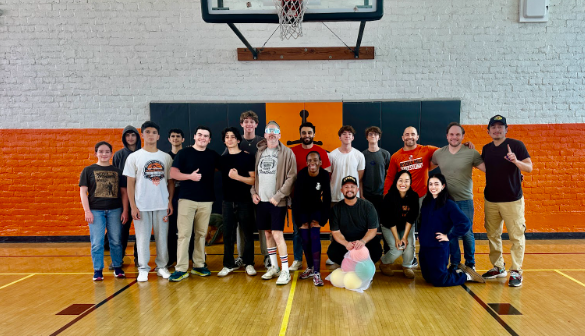Ben Dahan news editor
 “Now I am become death, destroyer of worlds.” Those were the chilling words, borrowed from Hindu scripture, that ran through J. Robert Oppenheimer’s mind as he witnessed the destructive capacity of his creation, which he was now handing to world leaders to unleash at will. Venerable podcaster Dan Carlin delivers this sobering reality in yet another masterstroke installment of his acclaimed Hardcore History.
“Now I am become death, destroyer of worlds.” Those were the chilling words, borrowed from Hindu scripture, that ran through J. Robert Oppenheimer’s mind as he witnessed the destructive capacity of his creation, which he was now handing to world leaders to unleash at will. Venerable podcaster Dan Carlin delivers this sobering reality in yet another masterstroke installment of his acclaimed Hardcore History.
In his latest podcast, “The Destroyer of Worlds,” Carlin masterfully illustrates an era when the fate of human civilization rested on the precipice of its demise. Humanity’s leap into the Atomic Age marked a turning point in which man became master of nature, yet struggled to avoid mastery by the nature of his creation.
Carlin is one of the most talented, experienced and listened to podcasters out there. There are few whose voice is tolerable enough to listen to for hours on end, but Carlin’s is definitely worth being heard, “again and again” (words that fans would recognize). He has over 40 free hours worth of history content to check out once you are done with his latest episode.
Fans have been waiting patiently for the drop of this latest show since Carlin released the conclusion of his three-part series “King of Kings” on the Achaemenid Persian empire in early August. Since then, Carlin has been working and researching diligently (consulting 40 books), at the expense of his political and current events show Common Sense.
As Carlin himself notes in his intro, his projects often take a life of their own, going on much longer than he expected or many prospective fans find easily consumable. The initial plan for the show was to focus on the Cuban Missile Crisis, but that doesn’t pop up until four and a half hours into his six-hour long narrative epic. As Carlin admits, “I am addicted to context.”
Starting from an event’s root cause is only logical, but choosing where to begin in the expansive timeline is not so cut-and-dry. This is is what keeps getting Carlin into trouble, as he must always take episodic length, audience attention span, and available work hours into account. However, Carlin’s contextual priority ensures his listeners are imprinted with a much more complete historical understanding; as a fan of history, there is nothing more you can ask for.
Carlin chops this latest show into three parts to make it more digestible — something he is trying for the first time. He is also, rather successfully, experimenting with inserting audio clips into the mix, such as the aforementioned quote by the guilt-ridden “father of the atomic bomb,” Oppenheimer.
Carlin starts the show off with the stunning realization that at any moment, the world can end. At a push of a button or utterance of an order, our world, 6 million years of human development, can be wiped out. This is, as Carlin says, a “gun to our head.” But as Carlin also points out, many have forgotten that the possibility is out there. “When you grow up with a gun to your head, do you forget that it’s there,” Carlin asks.
He touches on many of the open philosophical questions surrounding these almost divinely powerful forces. Will mankind be able to adapt to its unprecedentedly destructive weapons technology? Should we continue to develop even more powerful weapons? Could we stop if we wanted to? Can one man bear the burden of ending the world at the push of a button? Has the avoidance of armageddon for the past 70 years been a product of the evolution of human ethics? Can it be sustained?
Carlin depicts the deliberation with full detail, logic, and passion allowing you, the listener, to truly grasp the gravity resulting from the new reality. It turned the Cold War into a match of “three-dimensional nuclear booby-trapped geopolitical chess,” a game still played today.
A nuclear holocaust has thus far been avoided, but as Carlin brings up, the philosopher Bertrand Russell said, “You may reasonably expect a man to walk a tightrope safely for minutes; it would be unreasonable to do so without accident for two hundred years.”
A slip would mean utter catastrophe for the world we all live in. If we are going to be living with this “Sword of Damocles” waiting to drop on our heads, we may want to learn the history and context of our possible extinction. “The Destroyer of Worlds” gives both interested amateurs and full-fledged history-buffs this opportunity.
Using gruesome and stomach-churning first-hand accounts of the only two instances in human history when such weapons were used on people, at Nagasaki and Hiroshima, Carlin demonstrates that they earn the moniker “destroyer of worlds.” In an installment from four years ago, “Logical Insanity,” Carlin observes the “insane” course of human events that lead to the decision to unleash the world’s greatest man-made catastrophic force on innocents being considered “logical.”
This latest episode looks more at the course of human history after the demonstrable power of the split atom: two competing superpowers vying for global dominance; an arms race culminating in what one physicist called, “the equivalent of bringing a piece of the sun to the earth”; the use of the destruction of civilization as a bully pulpit, as well as a peacekeeper; world leaders walking up to the abyss of World War Three, and miraculously avoiding taking the final step; the ultimate threat faced by mankind, eradication by it’s own hands.
Given the pivotal nature of this era of human history and Carlin’s masterful portrayal of it, this is a podcast worth listening to. Yet again, Carlin proves he is the unparalleled champion of the podcasting space, especially when it comes to history, though he would undoubtedly maintain he is just a fan of history with too much time on his hands.

Categories:
Listening to Carlin’s “The Destroyer of Worlds” is a blast
February 3, 2017
0
Tags:
Donate to Highlights
$125
$1000
Contributed
Our Goal
Your donation will support the student journalists of Beverly Hills High School. Your contribution will allow us to purchase equipment and cover our annual website hosting costs.
More to Discover

































